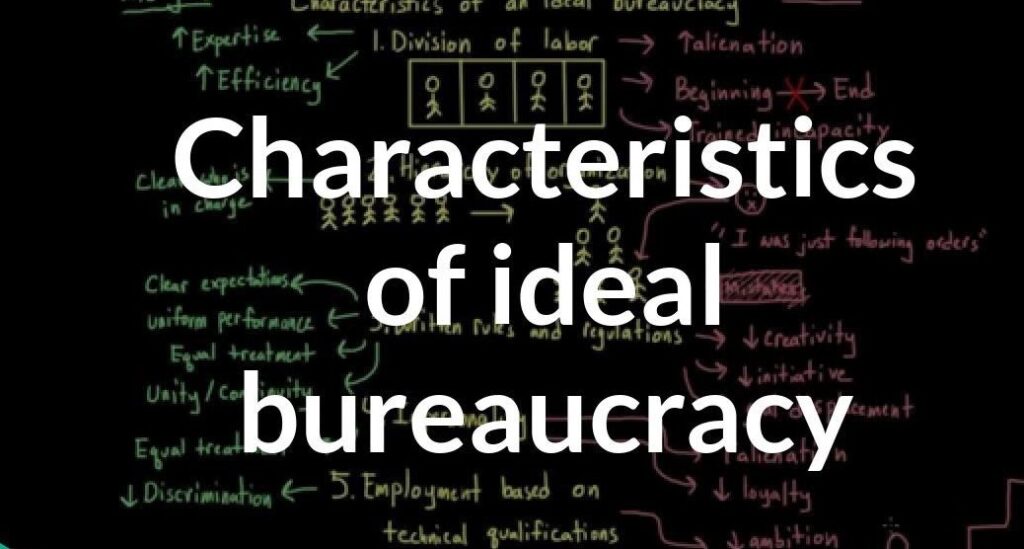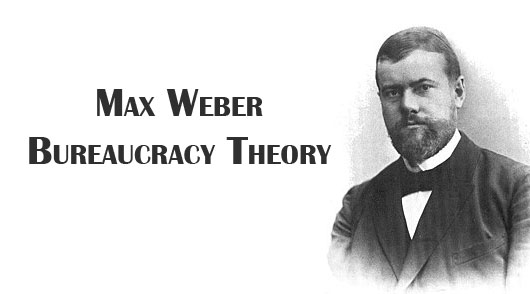
Characteristics of Bureaucracy (Sociology)

What is Bureaucracy?
Characteristics of Bureaucracy (Sociology), a specific form of organization defined by complexity, division of labor, permanence, professional management, hierarchical coordination and control, strict chain of command, and legal authority
- It has a clear hierarchy that defines who has authority and how much.
- creates a rigid division for the labor that must be complete.
- It has policies and procedures (or rules and laws) that are inflexible and provides consequences to those who do not follow the procedures or laws.
- It is based on impersonal relationships.
The term “bureaucracy” is often address to governmental structures only, but most people either work in a bureaucracy or encounter one every day. If your work is supervis by another person, that is a bureaucratic structure. Characteristics of Bureaucracy (Sociology)
A bureaucracy benefits society by creating structures that help to keep people safe and productive. It creates rigid policies and laws that must be follow to safeguard the wellbeing of a business or the safety of society. If problems are discover, then it becomes possible to correct them before the rest of the business, government, or society is affect by the issue.
The issue of time is the primary disadvantage of bureaucracy. Following inflexible rules and regulations takes time. Added time creates additional costs for all who are involve. That means taxpayers have an extra burden in governmental structures, while customers pay higher costs in commercial and industrial structures.
Characteristics and paradoxes of bureaucracy
So The foremost theorist of bureaucracy is the German sociologist Max Weber (1864–1920), He described the ideal characteristics of bureaucracy and offered an explanation for the historical emergence of bureaucratic institutions. According to Weber, the defining features of bureaucracy sharply distinguish it from other types of organization based on nonlegal forms of authority. According to Weber advantage of bureaucracy was that it was the most technically proficient form of organization, possessing specialized expertise, certainty, continuity, and unity. Bureaucracy’s emergence as a preferred form of organization occurred with the rise of a money-based economy (which ultimately resulted in the development of capitalism) and the attendant need to ensure impersonal, rational-legal transactions. Instrumental organizations (e.g., public-stock business firms) soon arose because their bureaucratic organization equipped them to handle the various demands of capitalist production more efficiently than small-scale producers.
Contemporary stereotypes of bureaucracy tend to portray it as unresponsive, lethargic, undemocratic, and incompetent. Weber’s theory of bureaucracy, however, emphasizes not only its comparative technical and proficiency advantages but also attributes its dominance as a form of organization to the diminution of caste systems and other forms of inequitable social relations based upon a person’s status. In the pure form of bureaucratic organization universalized rules and procedures would dominate, rendering personal status or connections irrelevant. In this form, bureaucracy is the epitome of universal standards under which similar cases are treat similarly as codified by law and rules, and under which the individual tastes and discretion of the administrator are constrain by due process rules. Despite the widespread derogatory stereotypes of bureaucracy, a system of government grounded in the law requires bureaucracy to function. Characteristics of Bureaucracy (Sociology)
Jurisdictional competency
Jurisdictional competency is a key element of a bureaucratic organization, which is broken into units with defined responsibilities. Basically, jurisdictional competency refers to bureaucratic specialization, with all elements of a bureaucracy possessing a defined role. The individual responsibilities are broaden with movement upward to the organizational hierarchy. The organizational division of labor enables individuals to master skills.
Command and control
So Bureaucracies have clear lines of command and control. Bureaucratic authority is organize hierarchically. The responsibility taken at the top and delegated with decreasing discretion is below. Authority is the glue that holds together diversity and prevents units from exercising unchecked discretion.
Continuity
Continuity is another key element of a bureaucratic organization. Authority necessitates uniform rules and procedures for written documents and official behaviour. A bureaucracy’s files (i.e., its past records) provide it with organizational memory, Those enabling it to follow precedent and standard operating procedures. The ability to utilize standard operating procedures makes organizations more efficient.Another advantage is decreasing the costs attached to any given transaction.
Professionalization
Professionalization is, another basic element of bureaucracy. It requires a full-time corps of officials whose attention is devote exclusively to its managerial responsibilities. In government, professionalization is vest in the corps of civil servents whose positions have generally been obtained through the passage of tests based upon merit.
Rules
The rules are the lifeblood of the bureaucratic organizations. Rules providing a rational and continuous basis for procedures and operations. An organization’s files provide the inventory of accumulated rules. So Bureaucratic decisions and above all procedures are ground in codified rules and precedents.
What Are the Advantages of Bureaucracy?
- Creativity thrives within a bureaucracy.
- Job security is provided.
- It discourages favoritism.
- A bureaucracy centralizes power.
- . It encourages specialization.
- Best practices are create.
- It creates predictability.
- It provides a foundation for scalability.
- Mergers and acquisitions can be complete quickly and easily.
- It is easy to fit into a bureaucracy.
What Are the Disadvantages of Bureaucracy?
- There is no emphasis on creating additional competencies.
- It fosters a structure that doesn’t create true productivity.
- Expenditures dictate actions.
- It is a battery for boredom.
- There is less freedom to act within a bureaucracy.
- The potential of inefficiency is as high as the potential for efficiency.
- It is difficult to maintain high morale within a bureaucracy.
- . It reduces the opportunity to quickly adapt to changing circumstances.
- A bureaucracy creates massive wage gaps.
- Inefficiencies are difficult to change.
What is Bureaucracy? Characteristics of Bureaucracy (Sociology), a specific form of organization defined by complexity, division of labor, permanence, professional management, hierarchical coordination and control, strict chain of command, and legal authority It has a clear hierarchy that defines who has authority and how much. creates a rigid division for the labor that must be…


I really like your wp theme, wherever did you download it from?
custom designed it by my friend.
You need to take part in a contest for one of the most useful websites on the web. I’m going to recommend this blog!